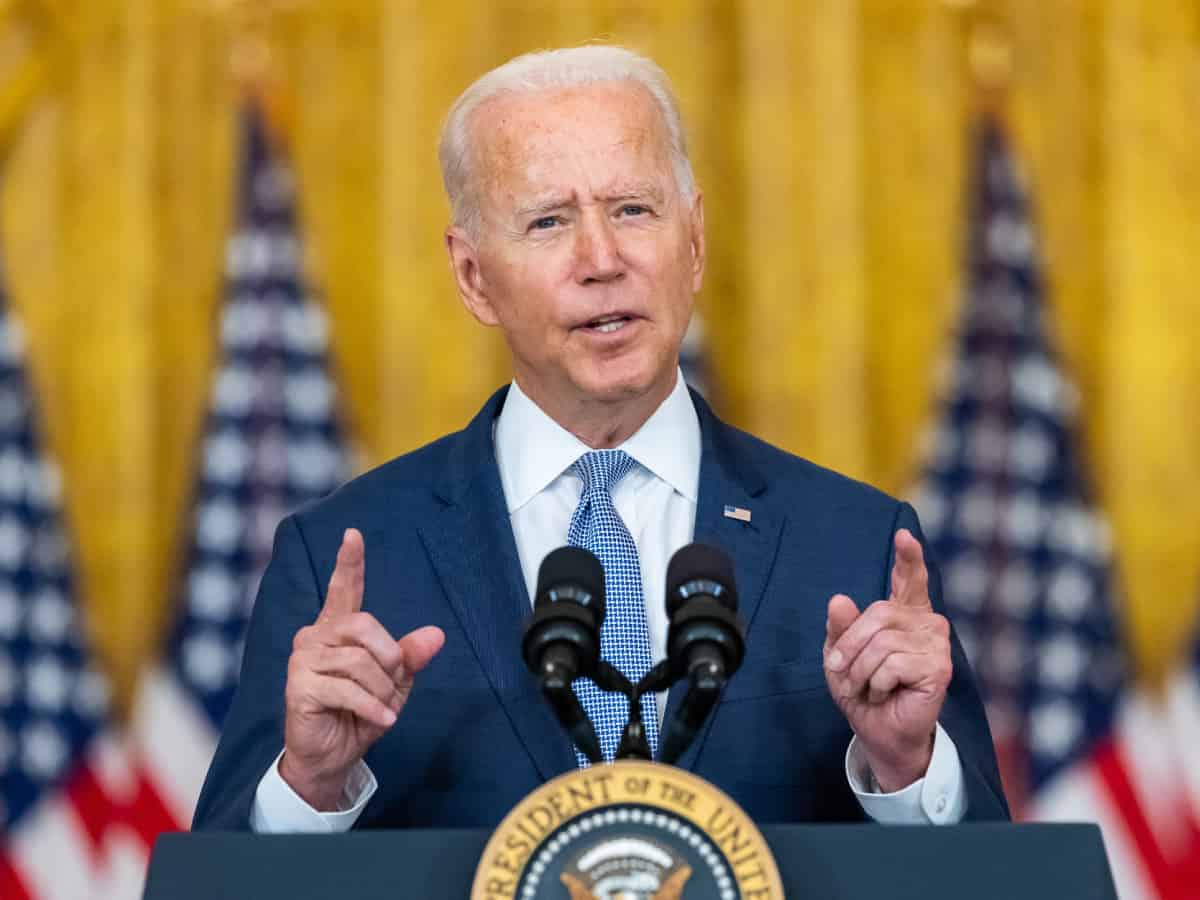
Washington: President Joe Biden has signed into law a bill which enhances US support for Tibet and promotes dialogue between China and the Dalai Lama toward a peaceful resolution of the dispute over the status and governance of the remote Himalayan region.
China had opposed the Resolve Tibet Act and described it as a destabilising Act. The Act was passed by the House of Representatives last February and it cleared the Senate in May.
“Today, I have signed into law S. 138, the “Promoting a Resolution to the Tibet-China Dispute Act” (the “Act”). I share the Congress’s bipartisan commitment to advancing the human rights of Tibetans and supporting efforts to preserve their distinct linguistic, cultural, and religious heritage,” Biden said on Friday in a late-night statement.
“My Administration will continue to call on the People’s Republic of China to resume direct dialogue, without preconditions, with the Dalai Lama, or his representatives, to seek a settlement that resolves differences and leads to a negotiated agreement on Tibet,” Biden said.
The 14th Dalai Lama fled Tibet in 1959 and came to India where he set up the government-in-exile at Dharamshala in Himachal Pradesh.
From 2002 to 2010, the Dalai Lama’s representatives and the Chinese government held nine rounds of dialogue that did not produce any concrete outcome.
China views the 89-year-old Tibetan spiritual leader, who is based in India, as a “separatist” who is working to split Tibet from the rest of the country.
The Act does not change longstanding bipartisan US policy to recognise the Tibet Autonomous Region and other Tibetan areas of China as part of the People’s Republic of China (PRC) –- a policy decision that Biden said falls within his authority to recognise foreign states and the territorial bounds of such states.
The Act enhances US support for Tibet— empowering State Department officials to actively and directly counter disinformation about Tibet from the Chinese government.
It rejects false claims that Tibet has been part of China since “ancient times,” pushing for negotiations without preconditions between the Chinese government and the Dalai Lama or his representatives or the democratically elected leaders of the Tibetan community and affirming the State Department’s responsibility to coordinate with other governments in multilateral efforts toward the goal of a negotiated agreement on Tibet.
China in opposition
In June, China had opposed the bill.
“Anyone or any force who attempts to destabilise Xizang to contain or suppress China will not succeed,” Chinese foreign ministry spokesman Lin Jian told reporters in Beijing.
“The US should not sign the bill. China will take resolute measures to defend its sovereignty, security and development interests,” he said.
Meanwhile, the State Department imposed visa restrictions on several Chinese officials for their involvement in the repression of marginalised religious and ethnic communities.
“The PRC has not lived up to its commitments to respect and protect human rights, as demonstrated by the ongoing genocide and crimes against humanity in Xinjiang, the erosion of fundamental freedoms in Hong Kong, persistent human rights abuses in Tibet, and transnational repression around the world,” State Department spokesperson Matthew Miller said Friday.
“We call on the PRC to abide by the principles enshrined in the Universal Declaration of Human Rights and to accept the many recommendations made this year during the Universal Periodic Review of its human rights record, including unconditionally releasing PRC nationals it has arbitrarily and unjustly detained,” he said.
